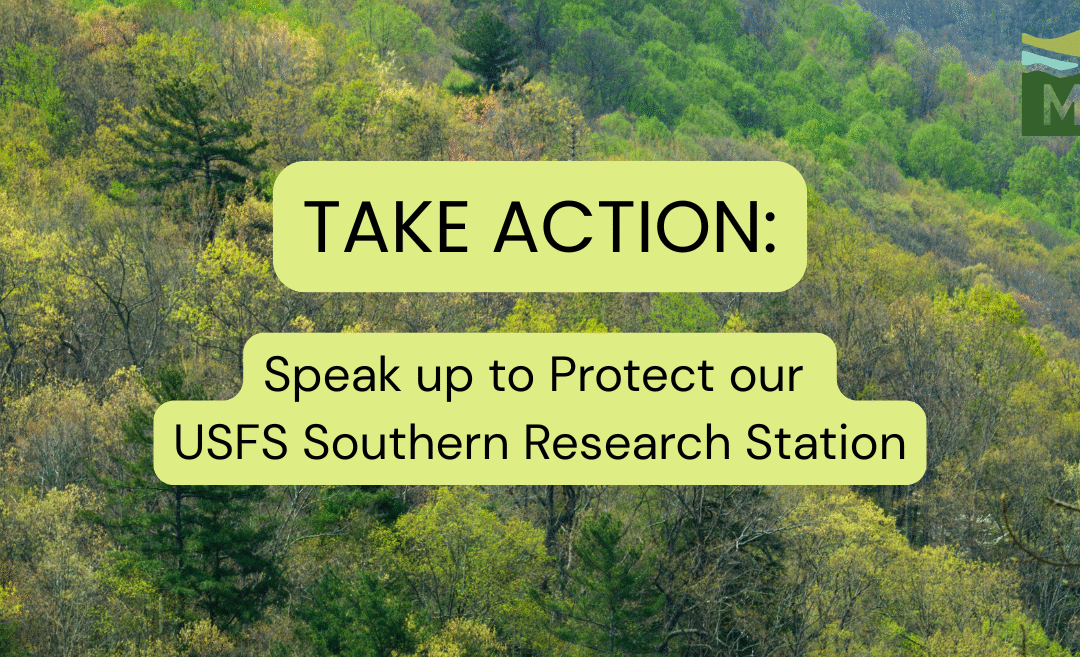
Take Action: Speak up to Protect our USFS Southern Research Station
Take Action: Speak up to Protect our USFS Southern Research Station
The USDA has proposed changes to the U.S. Forest Service structure. The proposal is far-reaching, but could have a huge impact on the US Forest Service if implemented. The Forest Service currently has a hierarchical structure of Washington Office > Regional Office > Forest Supervisors Office > Ranger District Office. The Forest Service also has a research branch that provides information on forest economics, forest pests and pathogens, timber management techniques, wildlife habitat, watershed management, fire management, and forest inventory, among other responsibilities. The headquarters for the Southern Research Station is in Asheville, North Carolina, and two important research forests, Bent Creek and Coweeta, are also located in Western North Carolina. The current reorganization plan would eliminate all Regional Offices and consolidate Forest Service Research to Fort Collins, Colorado. This plan would lead to the elimination or relocation of more than 100 forestry, administrative, and research jobs in Western North Carolina.
The economic effects of the reorganization would reverberate for decades. More than just the local job losses, the closing of the Southern Research Station would stifle innovation in forestry and conservation for decades to come. The Forests of the Southeast are distinct from those in other parts of the country. Southern National Forests have always gotten less funding and attention than those in the West, while the water, recreation, and wildlife they supply to the South are crucial. Please tell the USDA and your elected officials to save the US Forest Service and the Southern Research Station from this costly and unneeded reorganization.

